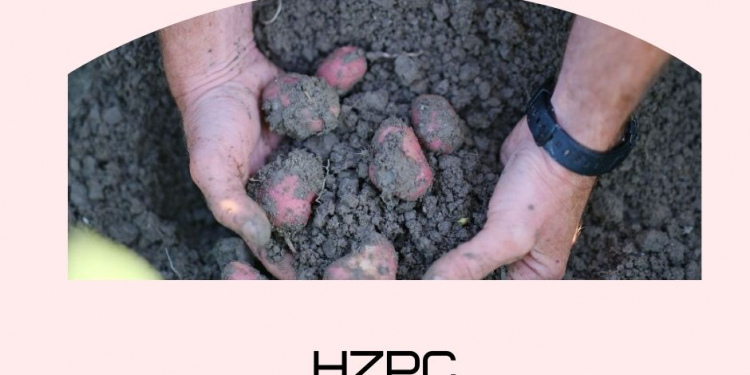HZPC says in a recent news article that the company’s growers know it better than anyone: a healthy soil is crucial for good potato growing. But a healthy soil offers more. It contributes to all the main pillars of HZPC in the field of sustainability.
The talk HZPC had with grower Pieter Klaas Westerhuis from Usquert in Groningen, the Netherlands confirms this: “We don’t want to leave any problems behind for the next generation to solve”.
The family business of Pieter Klaas Westerhuis has existed for over 200 years. He is 6th generation in the farm and has been growing seed potatoes since 1993 on one of the largest Wadden areas in the Netherlands. The knowledge and passion for arable farming has been passed on again and again and the next generation is now ready. His son Pieter joined the family business last year. Both are convinced of the importance of a healthy soil. And Pieter Klaas loves to share his knowledge, experience and vision of seed potato growing and sustainability.
In 1996, Pieter Klaas decided to take a course on soil and fertiliser. He gained insights that are still useful today. Pieter Klaas: “One of the first things I learned was to use deep-rooted crops, such as wheat. This prevents soil compaction. The decision to grow wheat after a harvest is part of a crop rotation plan. This type of plan is used by growers to keep the soil quality high. Besides the use of deep-rooted crops, fertilisation is also a very important factor. Pieter Klaas mainly uses animal fertiliser, which is better for the soil than artificial fertiliser.
Pieter Klaas: “One of the advantages of animal fertiliser is that it not only contains nitrogen, but also many other minerals. With the right animal fertiliser, you create good soil life full of worms, mould and good bacteria. We use different kinds of animal fertilisers. including chicken fertiliser, rich horse fertiliser and slurry (the wet part of cow fertiliser). We inject this slurry into soil when the wheat is already growing, when the crop has reached a height of around 10 cm. By injecting into a growing crop, you create very few emissions and wheat plants can cope with to this kind of fertilisation. Under the right conditions, the effect is lost after just a few days.
Together with an advisor from Delphy, Pieter Klaas investigates the quality of the soil. They look at the presence of organic matter, chalk and the pH level, among other things. Based on this research, they draw up a fertilisation plan. This allows them to ensure that the soil is capable of supplying the right nutrients.
Pieter Klaas: “The soil here is made of clay; it is full of clay particles.That’s logical because this land is and always will be a polder. Many years of experience have given us a deep understanding of ‘our’ soil. This knowledge also means knowing which potato varieties are ideal for the soil.”
Together with Garco van der Berg, field employee at HZPC, Pieter Klaas discusses which varieties to grow.
Pieter Klaas: “It is important that we do this together. Garco has the knowledge from the network at HZPC and knows very well what the market demands.” Besides Vivaldi and Innovator, they have been growing the varieties Memphis and La Vie for the past few years. “The combination of these varieties with the healthy soil in which we grow them, ensures a good resistance level; the potatoes are less sensitive to viruses, bacteria and Phytophthora. Also, the yield is high.”







